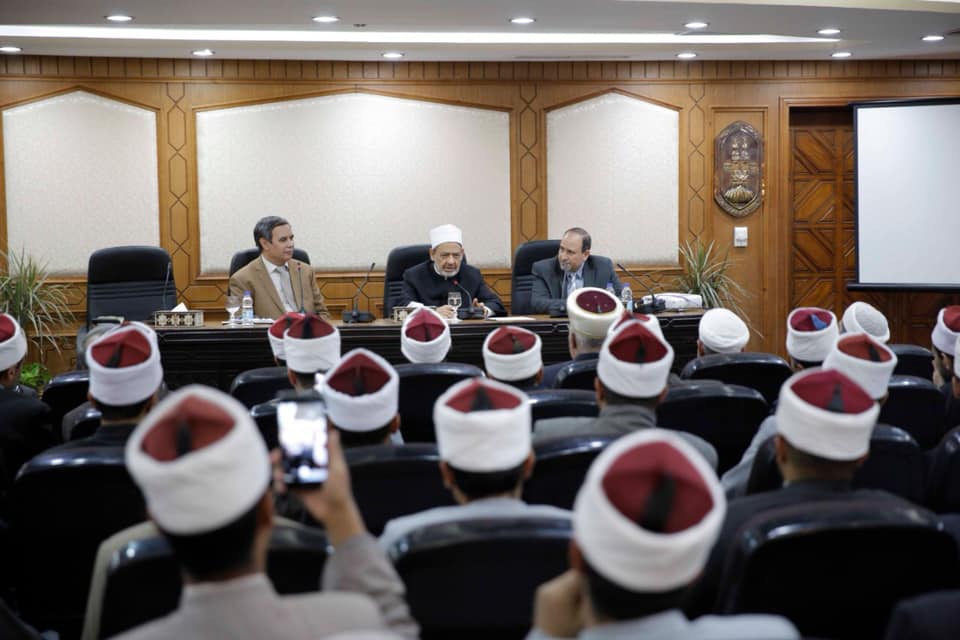The Grand Imam meets trainees at Al-Azhar Training Academy
Al-Azhar Grand Imam, Prof. Ahmad At-Tayyeb, received the imams and preachers trained at Al-Azhar International Academy for Training Imams and Preachers (AIATIP), who are enrolled in the "Qualifying the Contemporary Mufti" course; these are 130 imams and preachers from twenty Arab and Islamic countries.
His Eminence welcomed the trainees at the headquarters of Al-Azhar, expressing his great pleasure at meeting this distinguished group of preachers from the Muslim world, adding: “When I see you, I get the good hope that Al-Azhar has returned again to deliver its moderate message in the east and west of the world.”
The Grand Imam stressed that terrorism is no longer confined to our Arab region, but it has extended to the whole world, the case which means that it has to be confronted globally, not just locally. He added that this requires working on fighting thought with thought, and this is the main goal of the Academy’s work, pointing out that instilling authentic knowledge in imams and preachers qualifies them to face contemporary challenges, and equips them with true Islam, which Al-Azhar has been teaching for more than a thousand years.
Prof. Abdel Moneim Fouad, AIATIP General Supervisor, explained that the training program included intensive lectures on contemporary jurisprudence issues in addition to correcting the misconceptions related to issues of governance, jihad, caliphate, loyalty and disavowal. The program also discussed issues of sectarian fanaticism, doctrinal differences and their employment in sectarian conflicts, as well as lectures on psychology, sociology and communication skills, besides a number of workshops.
At the end of the meeting, the Grand Imam listened to the suggestions of the imams and preachers who participated in the course, regarding the mechanisms for developing the training programs at the AIATIP. They expressed their urgent need for a wider range of the programs offered by the AIATIP, and for more Islamic heritage books. They praised the academic program taught at the AIATIP, especially because it tackles important contemporary jurisprudence issues.
